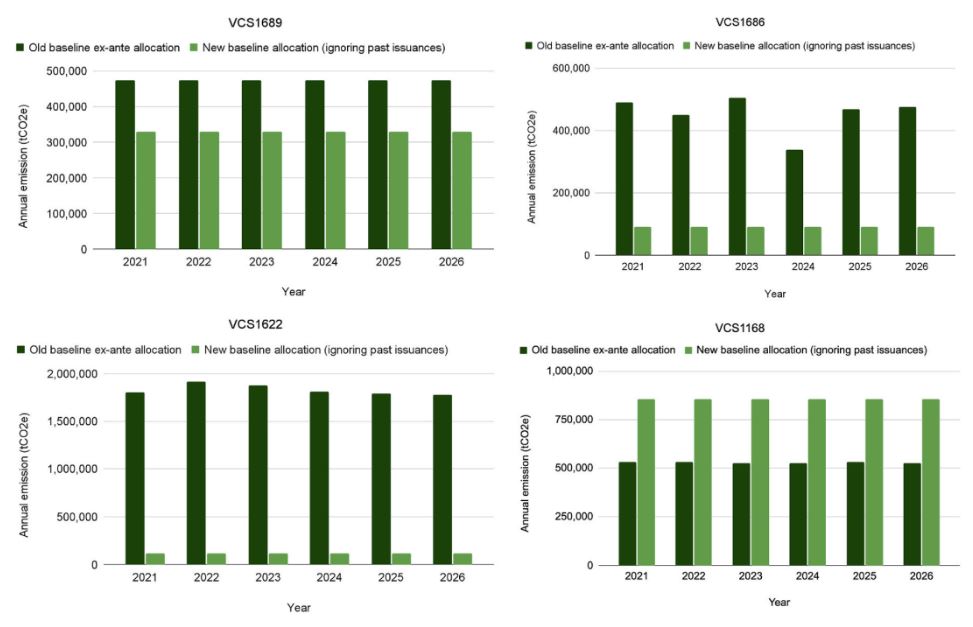February 01, 2024 | Journal of Environmental Management | Source |
Introduction: Forest conservation, vital in combating climate change, absorbs and stores CO2, mitigating emissions. REDD (Reducing Emissions from Deforestation and Forest Degradation) initiatives offer carbon credits, yet face scrutiny for overestimating credits due to flawed baselines. The third-party certifcation organization Verra is revising its Verified Carbon Standards (VCS) methodologies for more accurate emissions reduction assessments for REDD projects. Researchers from MTU Solid World, a non-profit organization based in Estonia, and from Indian Institute of Technolog evaluates the impact of proposed metholodogy revision on carbon credit generation across diverse REDD projects worldwide.
Key findings: The analysis revealed that the new methodology is projected to significantly reduce the amount of carbon credits issued for three out of four selected projects. This suggests that the new approach holds promise in improving the quality of carbon credits by reducing the risk of overestimating emissions. By refining baseline measurements and accounting for factors like historical deforestation rates and forest characteristics, the new methodology aims to enhance the credibility and effectiveness of REDD projects in combating climate change.
Figure | Comparison of the old baseline and the allocated baseline according to the new methodology.




